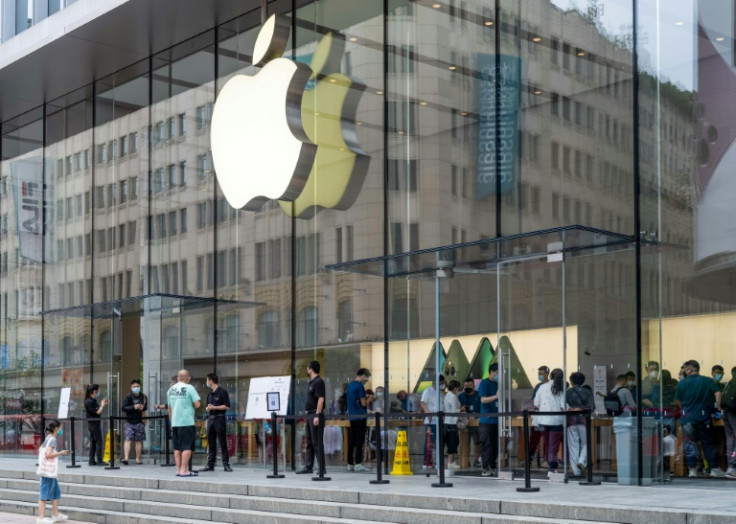In the fast-evolving landscape of China's smartphone market, Apple faced a huge setback in the first six weeks of 2024, with iPhone sales dropping by 24%, according to a report by Counterpoint Research.
China, accounting for a significant portion of Apple's revenue, represents one-fifth of its total sales. Apple's market share in China dipped to 15.7%, placing it in fourth position, a decline from its second-place position a year ago when it held a 19% market share.

This development may raise concerns about a potential slowdown in demand for the U.S. tech giant, especially considering that its revenue forecast for the current quarter fell short of Wall Street expectations by $6 billion. As a result, shares of the iPhone maker declined by 2.2% in premarket trading on Tuesday, marking a year-to-date loss of approximately 10%, which lags behind its counterparts in the U.S. tech sector.
While Apple struggled, Huawei emerged as a formidable competitor, having a remarkable 64% year-over-year surge in smartphone shipments during the same period. This revival demonstrates a notable turnaround for Huawei, which faced substantial challenges due to U.S. sanctions limiting its access to crucial technologies and components.
The resurgence of Huawei not only impacted Apple but also affected other Chinese smartphone brands. Oppo, Vivo, and Xiaomi witnessed declines of 29%, 15%, and 7%, respectively, exhibiting the competitive intensity within the local market. However, despite facing challenges, Huawei and its spinoff brand, Honor, emerged as the best-performing smartphone brands during the period, displaying their resilience and adaptability in the face of adversity.
Analysts attribute Huawei's success to its strategic focus on regaining market share and winning back customers who had previously switched to Apple. The introduction of the Mate 60 series, featuring advanced 5G connectivity and cutting-edge technology, resonated well with consumers, contributing to Huawei's resurgence.
In contrast, Apple struggled with disruptions in its supply chain, stemming from Covid-19 lockdowns in China in late 2022. The supply chain challenges, coupled with intensified competition, posed significant hurdles for Apple in maintaining its market position. Despite offering subsidies and discounts on iPhone models to incentivize purchases, Apple faced stiff competition from Huawei's aggressive pricing strategies and the competitive pricing of other local brands.
The shifting dynamics in China's smartphone market underscore the importance of innovation, competitive pricing, and market adaptability for global players like Apple. As Huawei continues to gain momentum and other local brands ramp up their efforts, Apple faces the challenge of navigating a highly competitive landscape while maintaining its brand loyalty and market relevance.
Looking ahead, Apple will need to devise strategies to regain lost ground and mitigate the impact of increased competition. Whether through product innovation, pricing adjustments, or strategic partnerships, Apple's ability to adapt to evolving market dynamics will determine its success in China's fiercely contested smartphone market.
Apple initiated subsidies on select iPhone models of up to 1,300 yuan ($180.68) last week via flagship stores on Tmall, Alibaba's prominent e-commerce platform. Earlier, it had provided discounts of up to 500 yuan on iPhones through its official websites last month.







